Description
ABSTRACT
Conviction without a Chemist’s Report: A Review of Nkie v FRN
Dr. Moses Ediru*
This work focuses on the central role of a Chemist’s Report in the trial of drug possessory cases. The objective is to underscore the impropriety of convicting an accused in a criminal trial for possession of cocaine without scientific proof that what he possessed is prohibited by the law. The offence of unlawful possession of cocaine is one constituted by expert evidence requiring proof by a Chemist’s Report made pursuant to the laboratory analysis of the suspected substance by an analyst recognised by the law. In the case under review the appellant was charged, tried and convicted based on the outcome (Exhibit ‘B’) of a preliminary colour test conducted by the arresting NDLEA officials at their Port Harcourt command office, using the United Nations Narcotics Identification Testing kits. There was no evidence at the trial that the suspected substance was analysed at the NDLEA Laboratory in Lagos and a Chemist’s Report issued pursuant to the analysis admitted under Section 55(1) & (2) of the Evidence Act, 2011, in proof of the nature of the suspected substance. Upon the above analysis, this work holds the view that the offence being one constituted by expert evidence, the leaning of the apex Court on the appellant’s confessional statement and plea of guilty in affirming his conviction and sentence without due regard to the scientific proof of the nature of the substance possessed rendered the conviction and sentence unlawful.
INTRODUCTION
The case of Nkie v FRN1 is a milestone in the trial of drug possessory cases in Nigeria because of the paradigm shift in the statement of offence contained in the charge. This work shall highlight the good and bad sides of the case as manifest in the Law Report. Nkie v FRN, being a drug possessory case it is expedient to examine the penal provision with a view to isolating the ingredients of the offence as created by the National Drug Law Enforcement Agency (NDLEA) Act.2 Both formal and statutory elements of the offence will be stated and examined in the light of the appellant’s confessional statement and plea of guilty to the charge. Formal elements of an offence are elements which by the nature of the offence must be proved to secure conviction even if not contained in the penal provision. They are common in offences constituted by expert evidence. For example, proof of cause of death by medical certificate where cause of death is uncertain and a chemist’s report as to the nature of a substance in possession of an accused. Statutory elements are those contained in penal provisions.
Next, this work intends to examine confessional statement as one of the modes of proof in drug possessory cases by passing the appellant’s confessional statement through a legal blast-furnace to see whether it will retain its quality as the most satisfying, the best and strongest evidence against an accused person as held by the apex Court in the case. Furthermore, the appellant’s plea of guilty shall be x-rayed in the context of the provision of the Administration of Criminal Justice Act (ACJA) 20153 with a view to determining the propriety or otherwise of plea of guilty to an offence constituted by expert evidence. In particular, to determine whether or not the appellant’s case falls
* Ph.D., BL, B. Pharm (Hons), mpsn, mnim, npn. Lecturer, Faculty of Law, Benue State University, Makurdi.
- (2014) 33 WRN 40.
- CAPN30, LFN 2004, S. 19.
- 2015, S. 274(2).

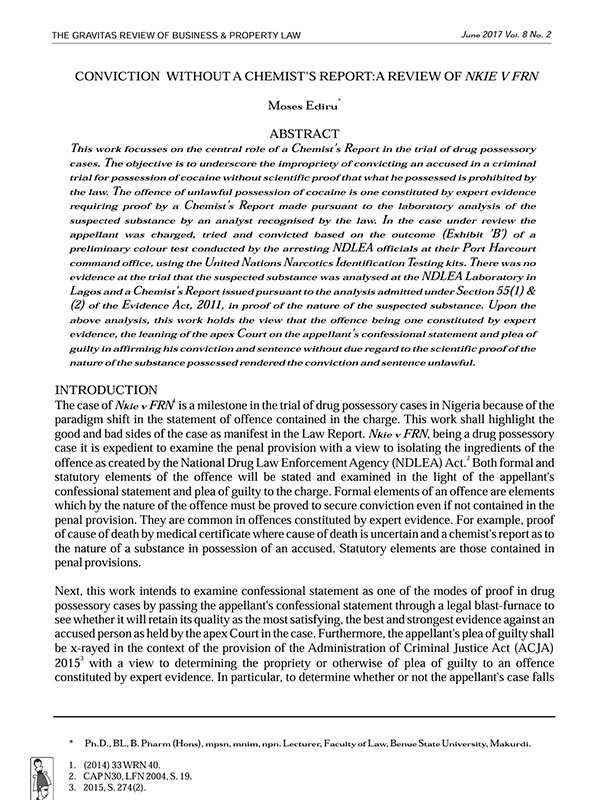
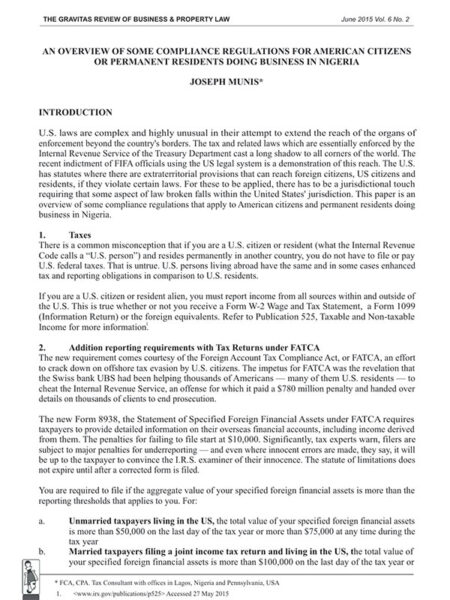
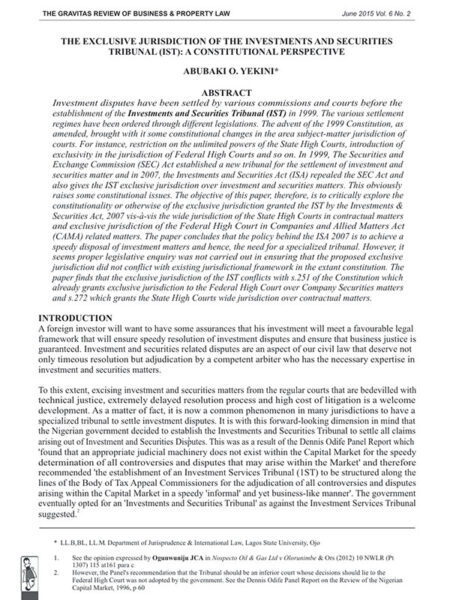
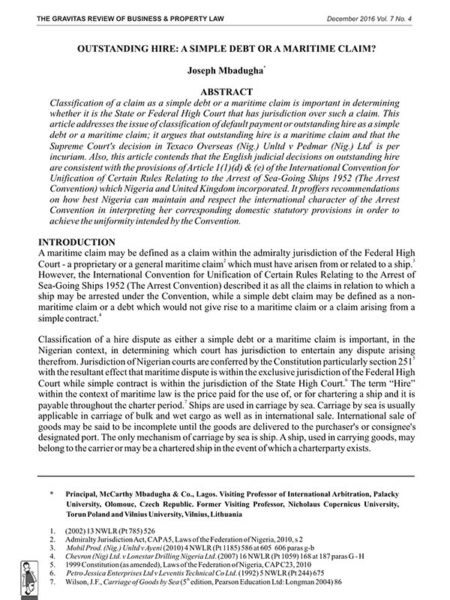
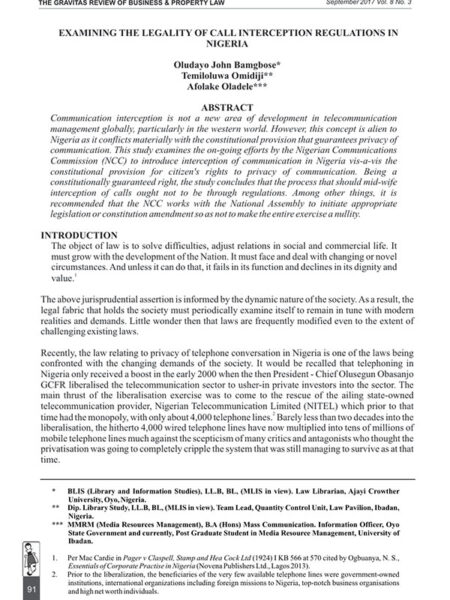


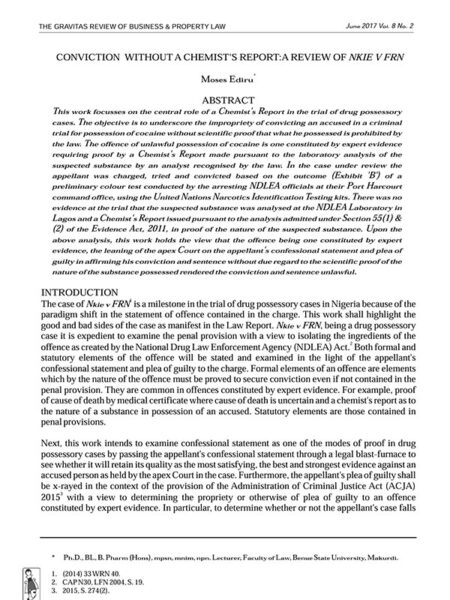
Reviews
There are no reviews yet.